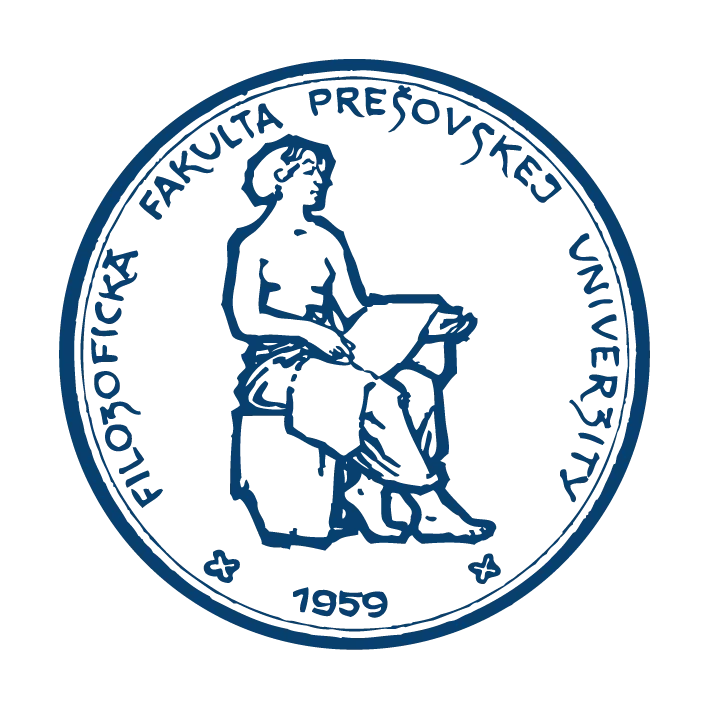State exam

Study programme: central european studies
Study level: first/bachelor
Academic year: 2021/2022
Topics for the state final examinations
Subject of the State Final Examination: Central European Literatures and Cultures
Note: Oral answer is required in Slovak language.
- The Formation of Central European Cultures in the 9th - 15th Centuries (The Period of Great Moravia, Early Hungary, Poland and Bohemia. The earliest literary monuments: Moravian-Pannonian legends, Legend of Svorad and Benedict, Proglas, Bogurodzica, chronicles of Gal Anonymus, Kosmas...etc.)
- Central European cultures in the period 1550-1750 (Reformation and Counter-Reformation, Renaissance and Baroque literature. Personalities and their works: J. Kochanowski, M. Rej, J. Hus, P. Skarga, J. Jakobeus, D. Krman...)
- Enlightenment and Classicism in Central European Literatures (Explanation of concepts, reforms and modernization in the field of language and literature (A. Bernolák, J. Dobrovský, F. Kazinczy, I. Krasicki...)
- Nation and national movements in the 19th century (Polish society in the times of partition and partitions, Slovak national identity, Czech-Slovak unity, Slavic reciprocity to Hungarian patriotism, Austrian statehood). Personalities and their works: J. Kollár, P. J. Šafárik, Ľ. Štúr, F. Palacký, K. Brodziński...
- Romanticism in Central European Literatures (Basic features and tendencies in literature). Personalities and their works: A. Mickiewicz, J. Kráľ, J. Słowacki, K. H. Mácha, S. Petöfi...
- Realism in Central European literatures (Realistic novels, novella short stories, historical prose. Personalities and their works: B. Prus, M. Kukučín, S. H. Vajanský, J. Neruda, H. Sienkiewicz, A. Jirásek...)
- Modernism and Modernism in Central European Literatures (1890-1918). Explanation of the terms: Symbolism, Art Nouveau and Decadence. The "Młoda Polska" and "Nyugat" movements. Personalities and their works: S. Wyspiański, K. Przerwa-Tetmajer, J. Kasprowicz, B. Leśmian, I. Krasko, O. Březina, F. Šrámek, E. Ady, S. Żeromski, W. S. Reymont; J. Jesenský, L. Nádaši-Jégé...
- Interwar avant-garde art in poetry in Central European literatures Explanation of the concepts of poeticism, surrealism, futurism. Personalities and works: J. Iwaszkiewicz, J. Tuwim, Cz. Miłosz, K. I. Gałczyński, V. Nezval, L. Novomeský, J. Silan, R. Dilong, R. Fabry, Š. Žáry...
- Interwar avant-garde art in prose and drama in Central European literatures Personalities and works: F. Kafka, S. I. Witkiewicz, W. Gombrowicz, B. Schulz, J. C. Hronský, M. Urban, V. Gombrowicz, J. C. Hronský, M. Urban, V. Vančura, K. Čapek...
- The Image of Fascism and Communism in Central European Literatures 1939-1956 Personalities and Works: T. T. Borowski, G. Herling-Grudziński, J. Stryjkowski, D. Tatarka, V. Mináč, R. Jašík, K. K. Baczyński, Cz. Miłosz...
- Transformations of Slovak/Polish Prose 1956 - 2020. Personalities and works: D. Tatarka, J. Johanides, R. Sloboda and D. Mitana / S. Mrożek, T. Konwicki, S. Lem; A. Stasiuk, N. Goerke, O. Tokarczuk and D. Masłowska...
- Transformations of Slovak/Polish poetry between 1956 and 2020. Personalities and works: M. Válek, M. Rúfus, J. Ondruš, Ľ. Feldek, The Lonely Runners / T. Różewicz, W. Szymborska, Z. Herbert, J. Podsiadło, M. Świetlicki, J. M. Rymkiewicz, E. Tkaczyszyn-Dycki...
- Dominant personalities and key literary texts in Central European cultures 1956 - 2020 (B. Hrabal, E. Bondy, M. Kundera, V. Holan, J. Skácel, J. Seifert, V. Havel, L. Vaculík and others)
- Canonical films in Central European cultures (themes, genres and directorial personalities). According to the themes of the seminar Central European Film
Subject of the state exam: Contemporary written language (Written communication in the language of specialisation)
Language of specialisation: Slovak. We do not publish subject headings. This will include the translation of a passage of text and verification of orthographic competence.
Subject of the state examination: Contemporary written language (Oral communication in the language of specialisation)
Note: the headings are related to the specialisation Slovak language, the oral answer is required in Slovak.
1. My university: university structure, advantages and disadvantages of student life. Graduation.
2. Professions and services today (online and offline services). Looking for a job.
3. Pluses and minuses of living in the city and in the village/apartment and in the house. My housing preferences.
4. Role of man and woman in home and life. Is there a woman's and a man's "world"?
5. Intercultural differences: is there a typical Slovak and a typical Ukrainian?
6. Rules of polite behaviour: what is (not) appropriate in the theatre, on the tram, in a taxi, at lunch, etc. Correspondence and telephoning.
7. Character types. Healthy and unhealthy lifestyles.
8. Electronic media and social networks in my life - how do they affect me?
9. Travel. Summer holidays and study abroad: my ideal destinations.
10. Traditional (brick-and-mortar) or virtual (online) shop? My purchases and monthly expenses.
11. Where to go for culture: cultural institutions, events and festivals. My taste in music and literature.
12. Fashion and beauty ideals yesterday and today. My style of dress.
13. In the police - types of crimes and ways of clarifying them. Crime as a problem of big cities.
14. Slovak Republic - political system and state symbols. Parliamentary and presidential elections and election campaigns.
15. Important national or religious holidays in Slovakia. Slovak customs and habits.
16. Slovak gastronomy - specifics of Slovak regions in eating and drinking. My favourite recipe.
17. UNESCO cultural and natural monuments in Slovakia: towns, castles, manor houses and caves.
18. Journey through life - social and family milestones from birth to death. Marriage in the 21st century.
19. Sports and sports disciplines. Popular sports in your country. Why (not) play sports?
20. What are we doing for the environment? Ecological problems of the world.
Subject of the state exam: Contemporary written language (Written communication in the language of specialisation)
Language of specialisation: Polish. Language of the specialisation: Language of the specialisation (language of the language of the specialisation). This will include translation of a text fragment and verification of orthographic competence.
Subject of the state examination: Contemporary written language (Oral communication in the language of specialisation)
Note: the headings refer to the specialisation Polish language, the oral answer is required in Polish.
- My dream vacation.
- Genealogy of my family.
- Pros and cons of living in the city and in the country.
- The most important discoveries and inventions for mankind.
- How to spend free time?
- Christmas in Poland - traditions and dishes.
- Which Polish movie is worth watching?
- My passions (hobbies).
- Cracow - historical city and center of culture.
- Does appearance matter? Fashion and styles of clothing.
- The job market. New and popular professions, my dream job.
- My dream house/apartment.
- Polish cuisine. My favorite dishes.
- Great Poles - distinguished for Poland.
- Vacations at the Baltic Sea - a good idea?
- The most important Polish cities. What is worth visiting?
- Selected event from Polish history.
- National holidays in Poland.
- My favorite book or my favorite musician.
- Favorite sport discipline. Popular sports in Poland, famous players.
